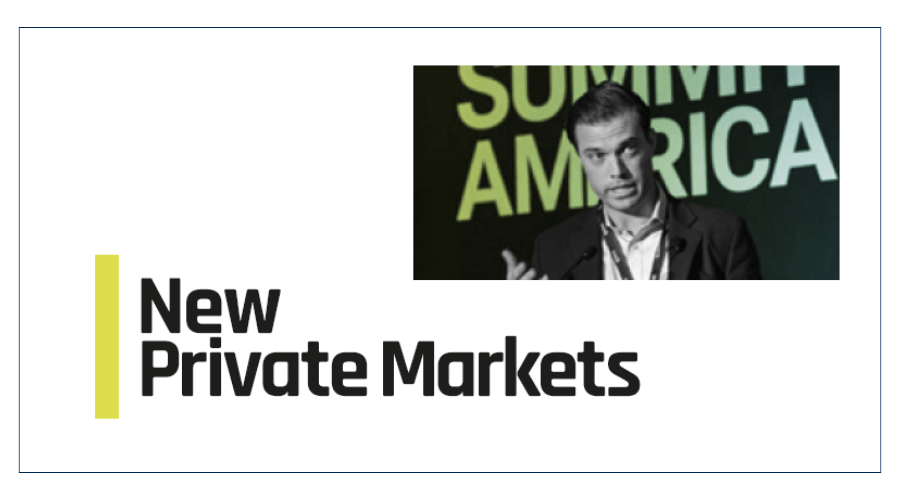New Private Markets: Sustainable Funds

Investors are leaving behind a wide-ranging approach to sustainability and opting instead for a thematic focus that taps into mega-trends and produces tangible impacts, according to Mark Hays, director of sustainable and impact investing at wealth management firm Glenmede.
“The big shift that we have seen is that there is limited to no interest in broad-based ESG-related strategies, [but] there is enormous interest in thematic investing,” Hays said in an interview with New Private Markets.
“We’re seeing the fundraising environment on the GP side really look to tackle these themes that are meeting the moment,” said Hays, who will be a panelist at NPM’s Investor Summit in New York in November, discussing trends in investor allocations.
Philadelphia-based Glenmede set up a sustainable investing team in 2014 with a focus on climate change, diversity and inclusion and empowerment, a category that includes health and wellness, affordable housing, financial inclusion and education.
“Specificity is so important now; a few years ago, it was less so,” he said.
Hays said he receives fewer pitches these days from broad-based sustainability funds and first-time funds. He does see, however, more pitches from second-, third- and fourth-time funds that have been able to navigate the market in the past few years.
“There are probably fewer funds overall, but I wouldn’t say it’s a huge drop-off. It’s a different type of pitch,” he said.
“It’s not ‘sustainability is dead’; it’s just embedded in a strong thematic underlying investment thesis.”
Hays cited “energy resilience” as one of the themes, involving the “pragmatic recognition” that expanding energy production could include natural gas or nuclear power projects alongside greater solar and wind power capacity.
“We can’t get there with wind and solar alone,” Hays said of a transition to low-carbon energy sources. “We need natural gas as a bridge to get us to the point where we can be fully supported by clean energy.”
Another theme is the circular economy, Hays said. Due to trade tariffs imposed by the US and other countries, many industries are trying to bolster domestic supply chains. Glenmede, in turn, is investing in companies that are developing ways to reuse and recycle materials in an efficient manner, Hays said.
“That is something that really recognizes the moment,” he said of the circular economy.
Looking ahead, Glenmede has considered whether the circular economy could suffer from drastic policy changes in the future, but concluded that it could have the edge in the long run.
“The companies that we’re looking at have been developing these economies for years, which has enabled them to be more efficient with their inputs,” Hays said. But if trade opens up again, he explained, a company that has less need to buy new materials would still have a competitive advantage.
Beyond energy expansion and the circular economy, another theme that pops up in sustainable investing is health and wellness, particularly mental health, women’s health and ageing, he said.
For an ageing population, investments go beyond senior living facilities and include technology to improve access to services for rural populations and companies that provide workforce programs for people over the age of 60, according to Hays.
In mental health, investments also involve widening access to support in rural areas, while in women’s health, they address “severe underfunding” and aim to close the gap in research and development, he said.